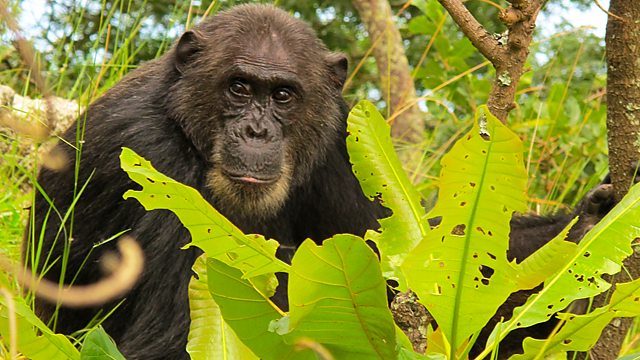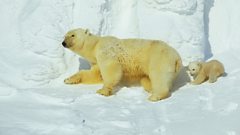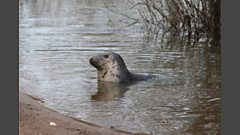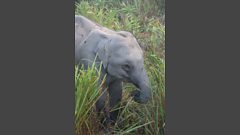International Wildlife
Brett Westwood looks at the relationship between polar bears and sea ice in the Arctic, elephants in India, and salmon research in Dorset.
On Monday 7th, Tuesday 8th and Thursday 10th of January 2013 at 9.30pm, 大象传媒 2 presents a series called "The Polar Bear Family and Me", a trio of films following a polar bear family in the Svalbard archipelago in the Arctic. The film highlights the trend of a reduction in sea ice being formed in the winter and the ice that does form is melting earlier than ever before. Saving Species investigates what the decline in sea ice means for the future of the polar bears in Svalbard.
Ellie Williams looks at the National Elephant Corridor Project in India which is redeveloping historical paths used by Asian elephants to travel between habitats. Many of the corridors have since been obstructed by villages, roads and railway lines so the project requires participation from communities and landowners.
In the 1980's the population of wild salmon in British rivers crashed by an estimated 70%. Initially the blame for this crash was put on the marine environment; was something affecting the adult fish returning to their spawning grounds? More recently attention has moved to freshwater rivers and whether the role the spawning and smolt survival plays a bigger influence. For 40 years the Game and Wildlife Conservation Trust have carried out research on the river Frome in Dorset, which now is beginning to provide data which could one day lead to the creation of a model that could predict good and bad years for returning adult salmon adults.
Also in the programme - news from around the world with our regular news reporter, Kelvin Boot, plus details on how you can contribute and use the Open University's iSpot facility.
Presenter: Brett Westwood
Producer: Mary Colwell.
Last on
More episodes
Previous
Clip
-
![]()
Polar Bears in Svalbard
Duration: 02:35
Polar Bears & Sea Ice

Up until 1973 when a hunting ban was introduced, (Ursus maritimus) were hunted in the Svalbard Area -听a cluster of islands in the Arctic that constitutes the northern-most part of Norway.听 The polar bears now face a new challenge from the diminishment of sea ice levels in the area, which is vital in order for the polar bears to reach their prey.
听
The undertakes an annual monitoring programme which has marked over 1000 polar bears in the last 40 years.听 Data received from the programme is an important source of knowledge for survival and reproduction.
Indian Elephants

One of the major threats to Indian wildlife is habitat fragmentation.听 Indian Elephants (Elephas maximus indicus), which are a sub-species of the , historically had a home-range spread over most of the country, but this has now been reduced to a range of fragmented forests scattered across India.听听Many of these habitats are connected by a series of corridors, which are steadily being erased by human developments.听 By allowing movement between habitats and to water, the corridors enhance survival and birth rate.听
听
, introduced听2001 by the and its international partner International Fund for Animal Welfare,听is an extensive country-wide study to identify and protect critical elephant corridors.听 Only 22.8% of the 88 identified corridors were free of major human settlements, resulting in an extremely large project to re-establish them, making participation from communities and landowners crucial.
Salmon Tagging in the River Frome

The (Salmo salar) is found in the northern Atlantic Ocean and in rivers flowing into it. It is an anadromous migratory fish species, which means adult fish live in the sea but migrate to freshwater to spawn. Juvenile fish live in freshwater before undergoing dramatic changes to migrate to sea.
听
It is widely accepted that there has been a global decline in Atlantic Salmon, an esitmated 70% during the 1980s and the Game and Wildlife Conservation Trust鈥檚 on the River Frome in Dorset monitors levels using a fish counter which was first installed in 1973.听 The photograph shows the tag reader at the research centre.
听
Broadcasts
- Tue 8 Jan 2013 11:00大象传媒 Radio 4
- Thu 10 Jan 2013 21:00大象传媒 Radio 4
The Open University
Get closer to the species with The Open University




